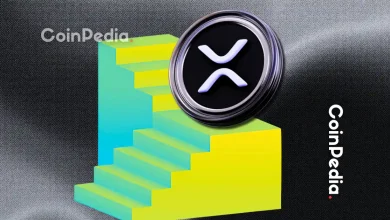
The SEC is considering a temporary "sandbox" regulatory framework to allow crypto innovation while developing long-term rules.
Acting Chair Uyeda advocates for a unified federal crypto framework over fragmented state regulations.
The SEC acknowledges the need for updated rules to address the unique challenges of blockchain and DeFi.
Acting SEC Chair Mark Uyeda has suggested the agency may introduce a “sandbox” rule for tokenized securities, according to Fox Business reporter Eleanor Terrett. This move could provide short-term relief for digital asset firms—both registered and unregistered—by giving them space to innovate while permanent regulations are developed.
What Is a Regulatory Sandbox?
A regulatory sandbox lets companies test new products or services without having to fully follow existing laws for a limited time. This allows them to experiment and grow without the immediate risk of legal action, while regulators work on clearer, more suitable rules.
“It’s what the prior administration could have done but instead they chose to sue companies for not being compliant,” she remarked.
Push for a Unified National Framework
Uyeda also said that crypto firms would benefit more from a single federal framework rather than having to deal with separate state-level rules. He proposed offering temporary exemptions for firms and asked for public feedback to help shape future rules.
“While the Commission works to develop a long-term solution to address these issues, a time-limited, conditional exemptive relief framework for registrants and non-registrants could allow for greater innovation with blockchain technology within the United States in the near term,” the agency stated.
Agency Invites Input to Support Innovation
The SEC said it supports short-term innovation in blockchain-based securities trading and is encouraging companies developing such platforms to suggest how and where exemptions might help.
The agency is also waiting for Congress to pass a crypto market-structure law, which would give it clear authority to write rules for the digital asset space. Lawmakers believe this could happen later this year, but it will still take time for the SEC and other agencies to create and enforce the actual rules once that law is in place.
New Platforms Could Offer Round-the-Clock Trading
Uyeda pointed out that current crypto platforms already handle both tokenized securities and tokens that are not considered securities. He added that newer platforms could even offer 24/7 trading, matching the nonstop pace of the crypto market.
Experts at the roundtable said current rules don’t work well for crypto and called for new ones designed specifically for blockchain systems, decentralized trading, and today’s crypto market practices. They also raised concerns about high-speed trading, a lack of transparency, and the risk of front-running and hidden activity in unregulated markets.
SEC Roundtable Highlights Crypto’s Mixed Operations
At the SEC’s second crypto roundtable, both Uyeda and SEC Commissioner Hester Peirce pointed out that many platforms want to offer both SEC-regulated services and those that fall outside the agency’s authority. The incoming SEC Chair, Paul Atkins, is expected to continue adapting the agency’s approach to digital assets.
Peirce said both the SEC and Congress need to address the gaps in crypto rules, especially as more firms mix securities trading with other types of activity.
The SEC also announced the schedule for its upcoming crypto-focused roundtables:
- April 25 – Custody rules
- May 12 – Tokenization and the TradFi–DeFi crossover
- June 6 – DeFi regulatory challenges in the U.S.
New Guidance for Crypto-Linked Firms
In a separate development, the SEC recently released updated guidance for firms dealing with crypto assets considered securities. The agency emphasized the importance of transparency, calling for clear disclosures about business models, associated risks, and financial data to better inform investors.
Never Miss a Beat in the Crypto World!
Stay ahead with breaking news, expert analysis, and real-time updates on the latest trends in Bitcoin, altcoins, DeFi, NFTs, and more.
FAQs
A regulatory sandbox allows crypto firms to try out innovative products without fully complying with current regulations for a short period of time. This move is aimed at encouraging blockchain innovation.
Both registered and unregistered crypto firms offering tokenised securities are expected to benefit as this would give them a short-term relief framework while the rules are framed.







